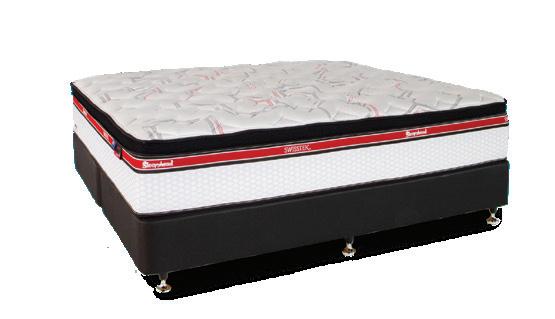
2 minute read
Janelle Saffin Vote 1
With the cancer metastasizing, or growing throughout her body, Irene knew there was no coming back from such a diagnosis.
“I am at peace with it,” she said.
“I am 71 in June and I have had a pretty good life.”
Understandably, her family, including her husband, two children, grand-children and sisters, were upset to be told her days were numbered.
But despite her traumatic news, Irene was more concerned for the nurses in the public health system she had been in contact with in one of her most recent hospital visits at Lismore Base.
“I had fluid on the lungs and gone into hospital in an ambulance,” she said.
“I went in on Monday and it wasn’t until Thursday that I got the drain.
“They just don’t have the staff.”
Irene said her heart went out to the nurses for the amount of work they do.
“Our health system is falling apart,” she said.
“Our local nurses aren’t getting paid anywhere near what the overseas nurses who come in are receiving.”
A media spokesperson from the NSW Nurses and Midwives Association said a few different incentive packages have been used by Local Health Districts (LHDs) to boost recruitments and fill long-term empty vacancies over the past year or so.
“In the June 2022 budget, the NSW government announced a Rural Health Workforce Incentive Scheme, because of the recruitment/retention issues experienced across the state, also in response to the rural, regional and remote health inquiry that had taken place,” the spokesperson said.
“This incentive scheme is being rolled out LHD by LHD, so it’s not entirely consistent.
“That said, public sector nurses and midwives in NSW are all paid under award rates.”
For Irene, the work the nurses do for her has literally been her lifeline and she knows they are worth so much more.
National Skills Commission
Regional Cities New South Wales (RCNSW) is calling on both sides of politics to support a bespoke solution to address regional skill shortages across the state.
“The current skills crisis is biting hard in regional New South Wales (NSW), and it is having a severe impact on regional productivity and growth” Cr
Mathew Dickerson
Chair of RCNSW and Mayor of Dubbo Regional Council said.
Data from the National Skills Commission shows that 67 per cent of regional employers reported difficulties recruiting.*
“We need to act urgently and think outside the box to address the current skills shortage, particularly in regional areas where we face a greater challenge attracting and employing the right level of skills” Cr Dickerson explained.
According to the Regional Australia Institute, regional job vacancies across the country continue to experience strong growth, with just over 81,000 jobs advertised in December 2022, or nearly a 100 per cent increase compared to pre-pandemic levels.


RCNSW is advocating that skilled migrants and their families are a welcome solution to addressing issues such as Australia’s ageing population, improving labour force participation and productivity, and helping businesses source skills that are difficult to develop at short notice. https://www. regionalcitiesnsw.org. au/
“RCNSW would like to work with the incoming NSW Government to attract a larger share of skilled migrants to regional NSW, and we believe that NSW’s nominations for allocation of skilled migrants needs to carefully consider the workforce needs of regional areas across NSW” Cr Dickerson said.
RCNSW would also like to work with the NSW Government to create a Designated Area Migration Agreement (DAMA) specifically for regional NSW to facilitate localised labour agreements.
A DAMA is a formal agreement between the Australian Government and a regional, state or territory authority that aims to provide that region with access to more overseas workers than the standard skilled migration program can deliver.

“Urgent action is required to support regional businesses to address the current skills crisis and overcome the enduring economic challenges of our regions” Cr Dickerson concluded.










